The given figure shows a change of state A to state C by two paths ABC and AC for a an ideal gas. Calculate the :
(a) Path along which work done is least.
(b) Internal energy at C if the internal energy of gas at
A is 10 J and amount of heat supplied to change its state to C through the path AC is 200 J.

(c) Amount of heat supplied to the gas to go from A to B, if internal energy change of gas is 10 J.
(a) AC, (b) 170 J, ( c) 10 J
Topper's Solved these Questions
- THERMODYNAMICSBOOK - MOTIONCHAPTER - THERMODYNAMICSEXERCISE - EXERCISE - 4 (LEVEL - I)
21 Videos
- THERMODYNAMICSBOOK - MOTIONCHAPTER - THERMODYNAMICSEXERCISE - EXERCISE - 4 (LEVEL - II)
19 Videos
- THERMODYNAMICSBOOK - MOTIONCHAPTER - THERMODYNAMICSEXERCISE - EXERCISE - 2 (LEVEL-II ASSERTION REASON)
6 Videos
- THERMOCHEMISTRY BOOK - MOTIONCHAPTER - THERMOCHEMISTRY EXERCISE - Exercise - 4 Level-II
8 Videos
Similar Questions
The given figure shown a change of state A to state C by two paths ABC and AC for an ideal gas. Calculate the :
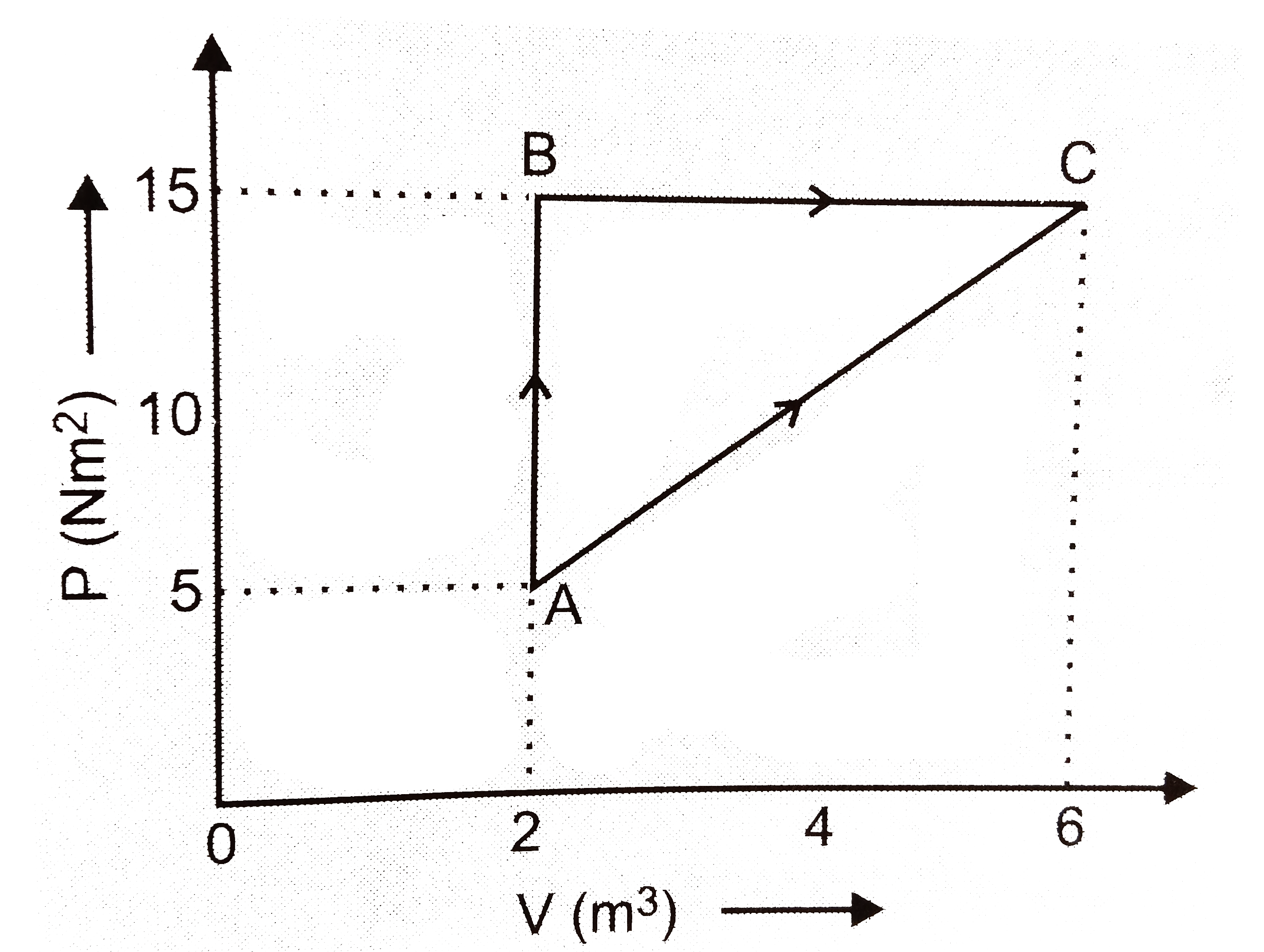
(a) Path along which work done is least.
(b) Internal energy at C if the internal energy of gas at A is 10J and amount of heat supplied to change its state to C through the path AC is 200J.
(c) Amount of heat supplied ot the gas to go from A to B, if internal energy of gas at state B is 10J.
View SolutionThe given figure shown a change of state A to state C by two paths ABC and AC for an ideal gas. Calculate the :

(a) Path along which work done is least.
(b) Internal energy at C if the internal energy of gas at A is 10J and amount of heat supplied to change its state to C through the path AC is 200J.
(c) Amount of heat supplied ot the gas to go from A to B, if internal energy of gas at state B is 10J.
View SolutionThe given figure shows a change of state A to state C by two paths. ABC and AC for an ideal gas. Calculate the ,
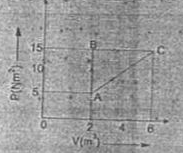
(a) Path along which work done is least.
(b) Internal energy at C if the internal energy of gas at A is 10 J and amount of heat supplied to change its state to C through the path AC is 200 J.
( c) Amount of heat supplied to the gas to gd from A to B, if internal energy of gas at state B is 10 J.
(ii) In an insulated contained 1 mole of a liquid, molar volume 100 mL. is at 1 bar liquid is steeply taken to 100 bar, where volume of liquid decreases by 1 mL. Find ΔE and ΔH for the process?
(iii) 14 g of oxygen at 0∘ C and 10 atm are subjected to reversible adiabatic expansion to a pressure of 1 atm. Calculate the work done in
(i) Litre atm.
(ii) Calorie (Given, CpCv=1.4).
View SolutionThe relationship between enthalpy and internal energy change is
View SolutionIn the given figure an ideal gas changes its state from A to state C by two paths ABC and AC.
_E01_269_Q01.png)
(i) Find the path along which work done is the least.
(ii) The internal energy of gas at A is 10J and amount of heat supplied to change its state to C through the path AC is 200J. Calculate the internal energy at C.
(iii) How much is the heat involved in the process ABC and ADC?
View Solution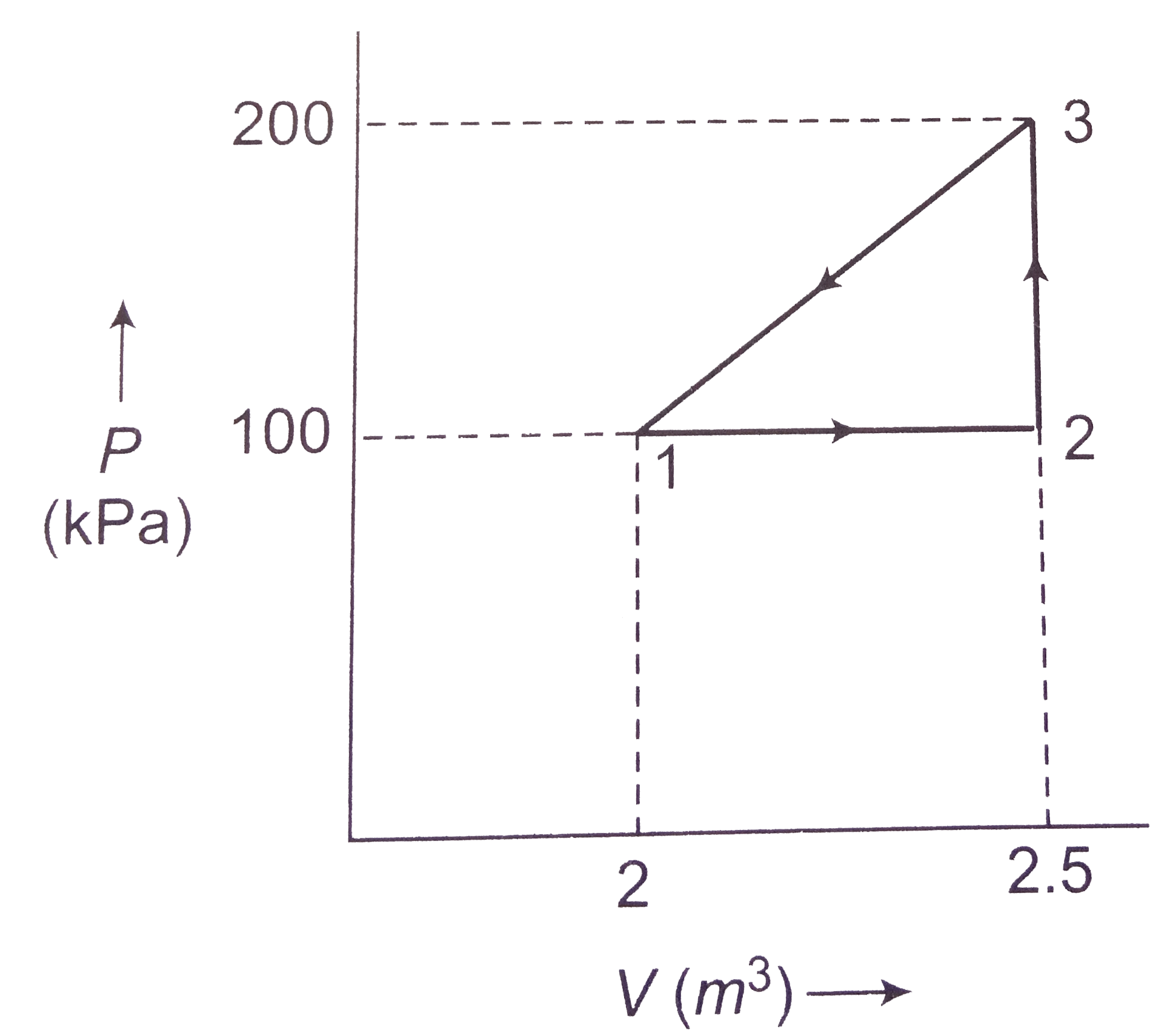
In the figure an ideal gas changes is state from state A to state C by two paths ABC and AC.
(a) Find the path along which the work done is least.
(b) The internal energy of the gas at A is 10 J and the amount of heat supplied to change its state to C through the path AC is 200 J. Calculate the internal energy at C.
(c) The internal energy of the gas at state B is 20 J. Fid the amount of the heat supplied to gas to go from A to B.
View SolutionIn the given figure, an ideal gas changes it state from A to state C by two paths ABC and AC.
(i) Find the path along which work done is the least.
(ii) The internal energy of the gas at A to 10J and the amount of heat supplied to change its state to C through the path AC is 200J. Calculate the internal energy at C.
(iii) The internal energy of the gas at state B is 30J. Find the amount of heat supplied to the gas to go from A→B.
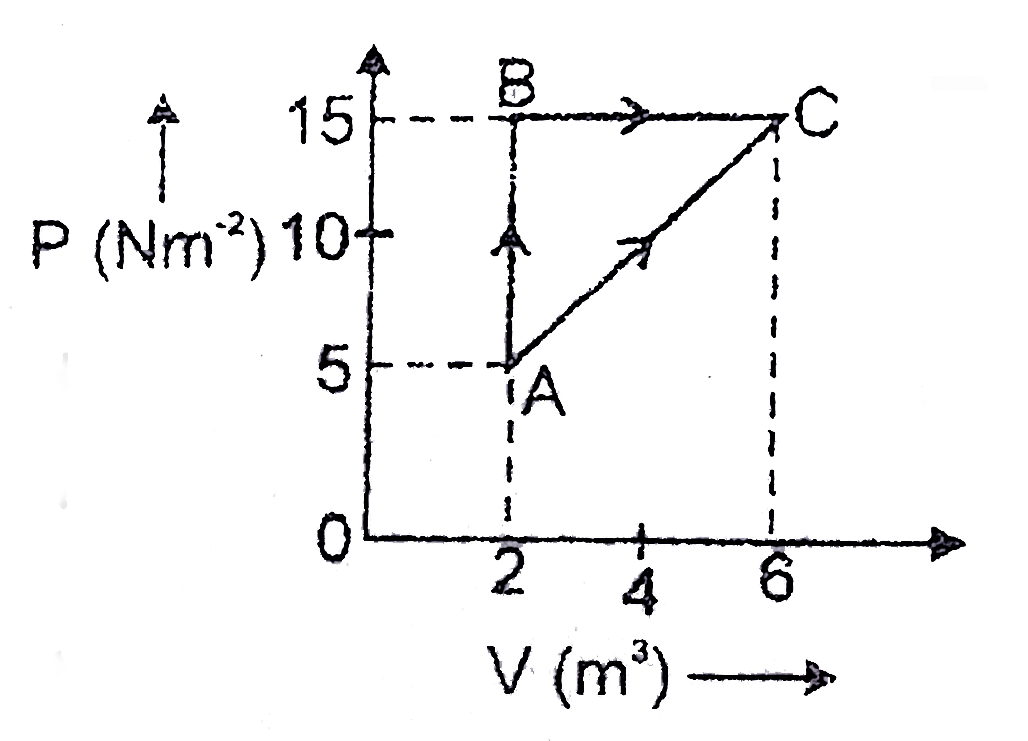
View SolutionIn the given figure, an ideal gas changes it state from A to state C by two paths ABC and AC.
(i) Find the path along which work done is the least.
(ii) The internal energy of the gas at A to 10J and the amount of heat supplied to change its state to C through the path AC is 200J. Calculate the internal energy at C.
(iii) The internal energy of the gas at state B is 30J. Find the amount of heat supplied to the gas to go from A→B.

View SolutionIn the given figure an ideal gas changes its state from A to state C by two paths ABC and AC.
_E01_269_Q01.png)
(i) Find the path along which work done is the least.
(ii) The internal energy of gas at A and B is 10J and 20 J respectively amount of heat supplied to change its state to C through the path AC is 200J. Calculate the internal energy at C.
(iii) How much is the heat involved in the process ABC and ADC?
View SolutionFigure. Shows an ideal gas changing its state A to state C by two different path ABC and AC.
a. Find the path along which the work done is the least.
b. The internal energy of the gas at A is 10J and the amount of heat supplied to change its state to C through the path AC is 200J. Find the internal energy at C.
c. The internal energy of the gas at state B is 20J. Find the amount of heat supplied to the gas to go from state A to state B.
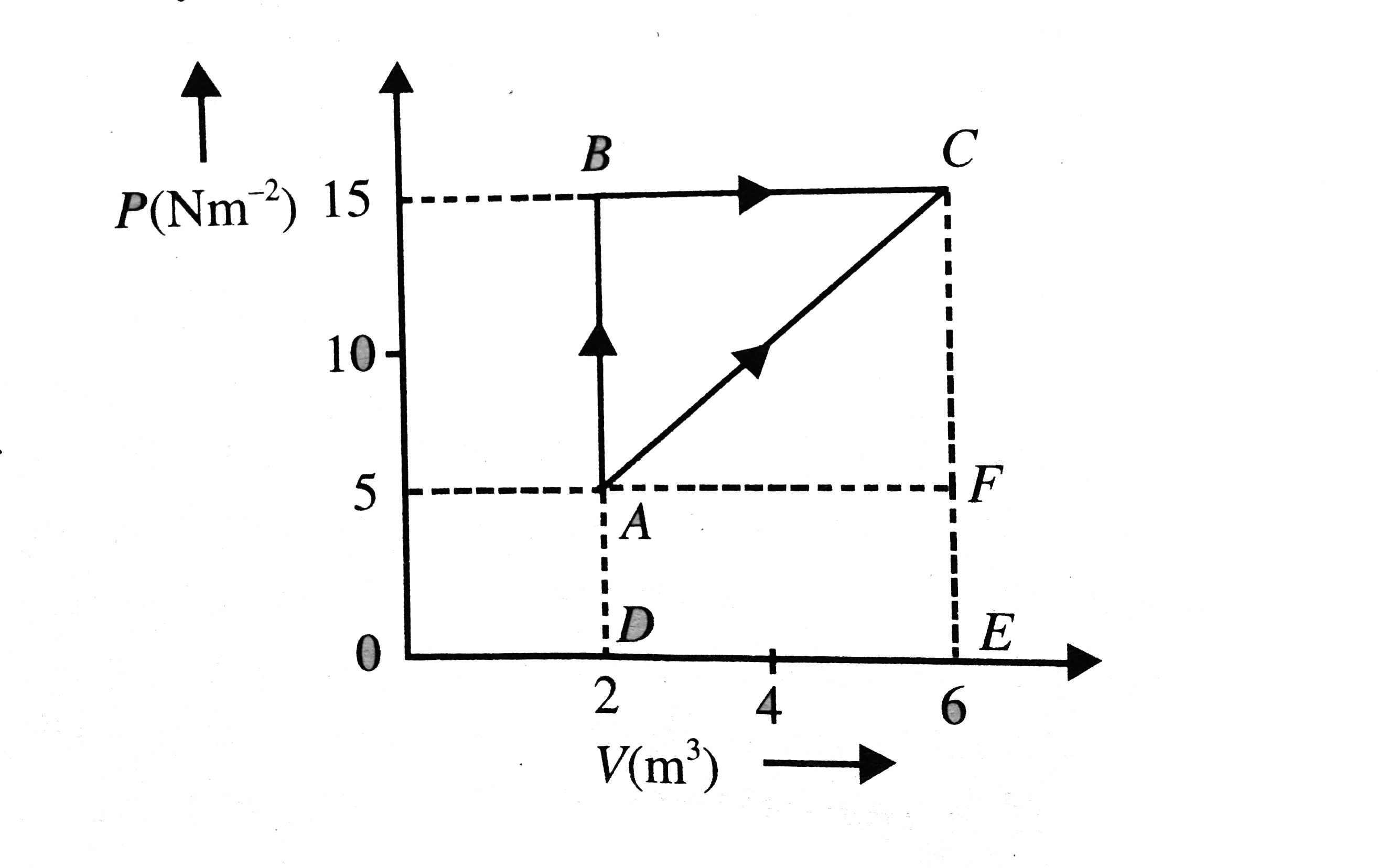
View Solution
